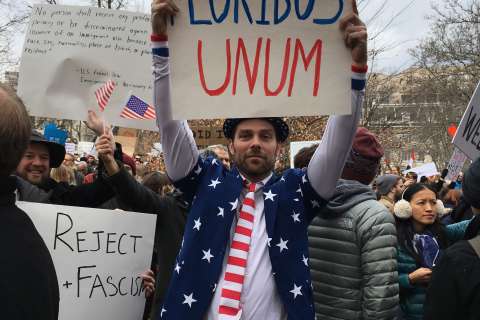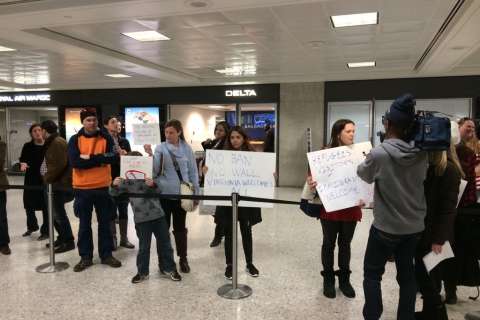WASHINGTON — Virginia’s attorney general announced Tuesday that the state would join a federal lawsuit challenging a presidential executive order barring travel and immigration from some majority-Muslim countries — calling the order unlawful, unconstitutional and un-American.
Mark Herring said the chaos that resulted from the order led to the violation of the constitutional rights of “numerous” Virginians and that it was necessary to intervene in order to “vindicate its residents’ civil rights.”
Gov. Terry McAuliffe and Herring, both Democrats, announced the legal move Tuesday in Richmond. They said the order prevents students from returning to continue their studies, prevents businessmen from returning from or leaving on work trips, and keeps educators away from their research at the state’s public universities and colleges.
“There are countless residents of the commonwealth — people who live in Virginia, who work in Virginia or who attend schools in Virginia — whose lives and livelihoods have been or will be severely disrupted by the order,” Herring said.
For McAuliffe, the symbolism of the attorney general’s effort is just as important.
“I’m the governor of the commonwealth that was founded on religious freedom. This is a principle that we all can never forget and we need to continually fight for,” McAuliffe said.
Virginia is intervening in a case that focuses primarily on lawful residents affected by the ban. Administration officials have since said that lawful permanent residents, typically known as green-card holders, will routinely receive waivers from the ban, according to The Associated Press.
The suit was originally filed on behalf of the Aziz brothers and 60 other unnamed travelers who were detained and held Saturday at Dulles International Airport as a result of the order. One of the brothers is a U.S. citizen and the other two are Yemeni citizens. They were traveling to Flint, Michigan, together.
The temporary travel ban suspends entry of all refugees into the United States for 120 days. Citizens from seven predominantly Muslim countries, including Yemen, are blocked from entry into the United States for 90 days.
The states of Washington, New York and Massachusetts are already suing the Trump administration over the ban.
WTOP’s Michelle Basch and Sarah Beth Hensley contributed to this report.







